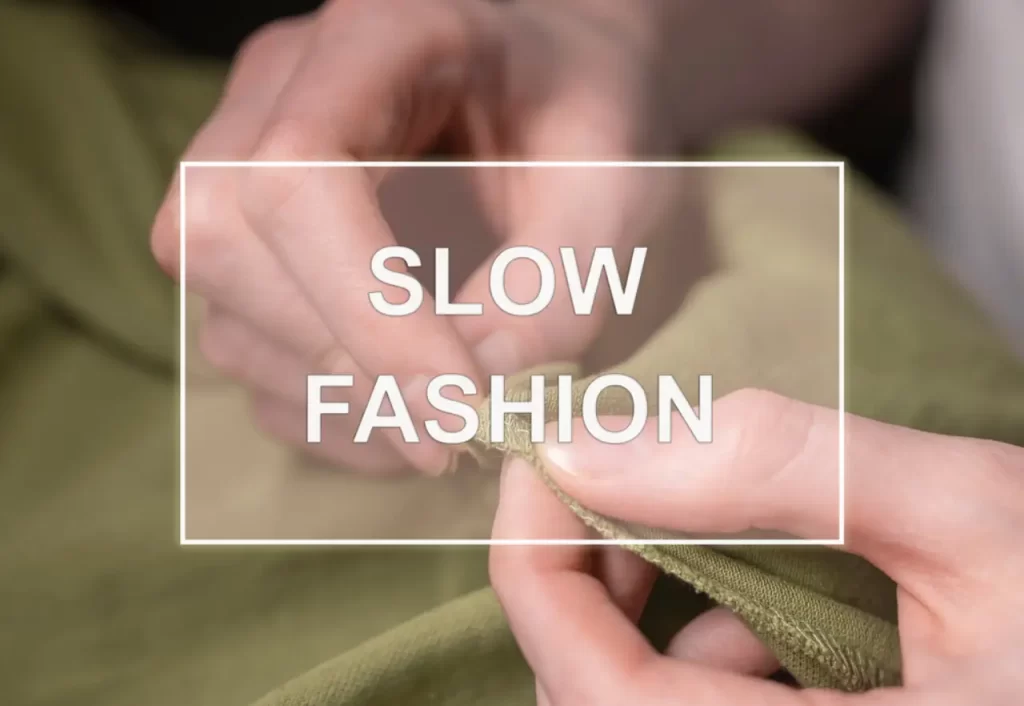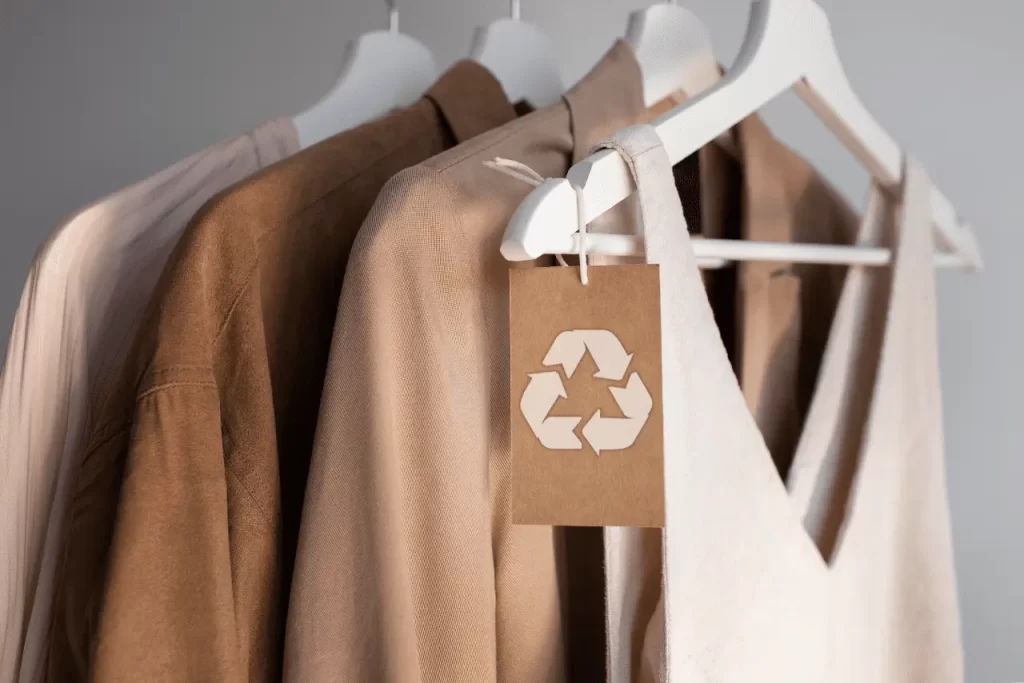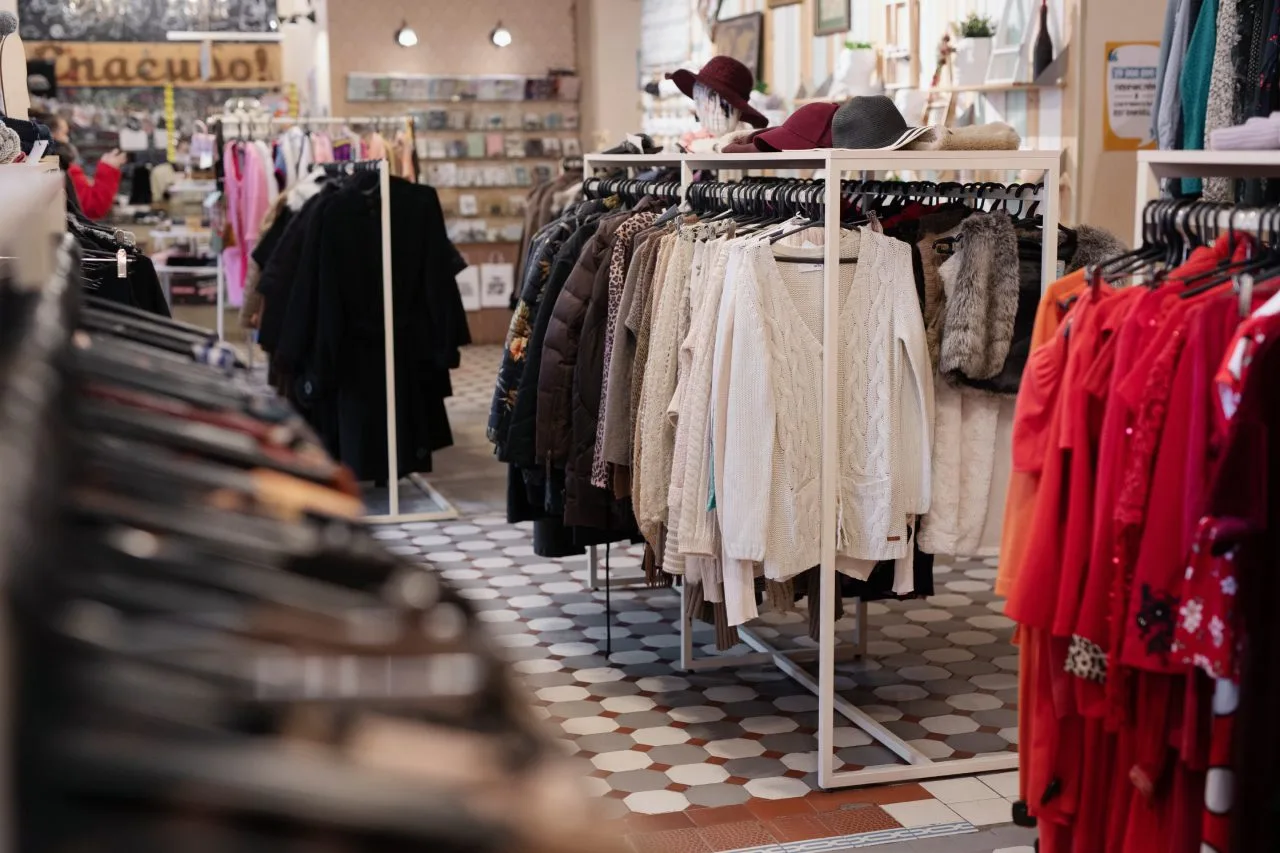Ethical fashion is not just a trend but a movement towards a more sustainable and responsible approach to clothing production. It encompasses various principles such as fair wages, safe working conditions, eco-friendly materials, and transparency in the supply chain. This comprehensive guide aims to explore the essence of ethical fashion, its impact on the industry and the environment, and how consumers can make informed choices to support ethical practices. Join us on a journey to understand the ethos behind ethical fashion, what ethical fashion means, and discover why it’s crucial for shaping a more conscientious and ethical future in the fashion world.
What is Ethical Fashion?
Ethical fashion encompasses garment design, production, and distribution aimed at minimizing harm to both people and the planet. In its ideal form, it benefits everyone involved in the supply chain and contributes to a more equitable and sustainable future. Ethical fashion can be described in various ways, but fundamentally, it involves creating clothing, accessories, and other items using environmentally and socially responsible practices. This includes using sustainable materials, adhering to fair trade standards, and avoiding negative impacts on the environment during production.
Ethical fashion represents a transformative shift in the fashion industry, moving away from the traditional focus solely on aesthetics and profitability towards a more conscientious and sustainable approach. By advocating for ethical fashion, individuals and brands contribute to creating a positive impact on society and the planet. It fosters a more inclusive and equitable fashion ecosystem where everyone involved—from garment workers to consumers—benefits. Ethical fashion encourages mindful consumption, empowering individuals to make informed choices that align with their values, thereby paving the way for a more sustainable and responsible future in the fashion industry.
What is Sustainable Fashion?
Sustainable fashion focuses on minimizing the environmental impact of the fashion industry. It involves using eco-friendly materials like organic cotton, recycled fabrics, and innovative alternatives to traditional textiles. Sustainable fashion also emphasizes reducing waste through efficient production and encouraging responsible consumption habits among consumers. By embracing sustainability, fashion brands contribute positively to environmental conservation and address pressing issues like climate change and resource depletion.
Key elements of sustainable fashion include using eco-friendly materials like organic cotton, recycled fabrics, and innovative alternatives to traditional textiles. It also involves implementing sustainable production techniques such as water and energy conservation, reducing carbon emissions, and promoting circular economy practices like recycling and upcycling. Sustainable fashion advocates for transparency in the supply chain, ensuring consumers have access to information about how their clothing is made and its environmental footprint. By embracing sustainable fashion, individuals and brands contribute to mitigating the environmental impact of the fashion industry while promoting social responsibility and ethical practices. It encourages a shift towards a more mindful and conscious approach to fashion consumption, where quality, longevity, and sustainability take precedence over fast-paced trends and disposable fashion culture.
What is the difference between ethical, slow, and sustainable fashion?
In the world of conscious fashion choices, understanding the distinctions between ethical, slow, and sustainable fashion is crucial. Each approach carries its own set of principles and practices that contribute to a more responsible and mindful fashion industry.
Ethical Fashion
Ethical fashion is rooted in principles that prioritize fairness and responsibility throughout the fashion supply chain. This includes fair wages and safe working conditions for garment workers, transparency about production processes, and a commitment to environmental sustainability. Brands and designers practising ethical fashion often adhere to fair trade standards, use eco-friendly materials, and promote social welfare initiatives. Ethical fashion seeks to create a positive impact by addressing issues of labor exploitation, promoting ethical business practices, and encouraging consumers to make informed choices that support ethical values and practices in the fashion industry.
Slow Fashion

Slow fashion is a counter-movement to the fast-paced, disposable nature of mainstream fashion. It advocates for a more thoughtful and sustainable approach to clothing consumption, emphasizing quality over quantity and longevity in garment design. Slow fashion encourages investment in timeless pieces, durable materials, and craftsmanship that withstands trends and seasons. By promoting mindful consumption habits, reducing overproduction and waste, and supporting local and artisanal production, Slow Fashion aims to create a more sustainable and meaningful relationship between consumers, clothing, and the environment.
Sustainable Fashion

Sustainable fashion focuses on minimizing the environmental impact of clothing production by prioritizing eco-friendly materials, responsible manufacturing processes, and ethical practices. This includes using organic and recycled fabrics, reducing water and energy consumption, minimizing waste through recycling and upcycling, and promoting circular economy principles. Sustainable fashion also encompasses efforts to address social and ethical issues in the industry, such as fair labor practices, worker empowerment, and community engagement. By adopting sustainable practices throughout the supply chain, sustainable fashion aims to create a more resilient and regenerative fashion industry that aligns with environmental and social values.
The Importance of Ethical Fashion
In today’s globalized fashion industry, ethical fashion plays a pivotal role in fostering sustainability, social responsibility, and transparency. One of its primary importance lies in addressing the ethical concerns prevalent in garment production, such as fair wages, safe working conditions, and human rights. By prioritizing the well-being of workers, ethical fashion contributes to creating a more equitable and just fashion ecosystem.
Furthermore, ethical fashion champions environmental sustainability by promoting eco-friendly practices and materials. This includes using organic and recycled fabrics, reducing waste through efficient production processes, and adopting renewable energy sources. By minimizing the environmental footprint of clothing production, ethical fashion helps mitigate the industry’s impact on climate change and resource depletion.
Ethical fashion also serves as a catalyst for consumer awareness and empowerment. It encourages consumers to make informed choices about the brands they support based on ethical and sustainable practices. This shift in consumer behaviour towards conscious consumption not only drives demand for ethical fashion but also encourages other sectors of the industry to adopt responsible practices.
Moreover, the importance of ethical fashion extends beyond individual actions to influence industry-wide change. It inspires fashion brands and retailers to reevaluate their supply chain practices, implement ethical sourcing policies, and prioritize transparency and accountability. Ultimately, ethical fashion sets a standard for a more ethical, sustainable, and socially responsible fashion industry, paving the way for a brighter and more equitable future.
Is Fast Fashion Ethical?
Fast fashion is often criticized for its lack of ethical practices and sustainability. The rapid production cycles and low-cost strategies employed by fast fashion brands often result in the exploitation of labour, poor working conditions, and environmental degradation. Workers in fast fashion supply chains, particularly in developing countries, are frequently underpaid and subjected to unsafe working conditions, violating basic human rights principles.
Additionally, fast fashion’s focus on cheap and disposable clothing contributes significantly to textile waste and pollution. The use of synthetic materials and toxic chemicals in production further exacerbates environmental harm, including water pollution and greenhouse gas emissions.
While some fast fashion brands have made efforts to improve their ethical and sustainability practices, such as implementing ethical sourcing policies or introducing eco-friendly collections, the core business model of fast fashion remains inherently challenging from an ethical standpoint. Consumers increasingly demand transparency and accountability from fashion brands, urging the industry to rethink its approach and prioritize ethical and sustainable practices
How Can Fashion Companies Become More Ethical?
As consumers become more conscious of ethical practices, fashion companies are under increasing pressure to adopt more responsible approaches. Here are some strategies they can employ:
Use Sustainable Materials
Fashion companies can significantly improve their ethical standing by prioritizing the use of sustainable materials in their products. This includes sourcing organic cotton, recycled fabrics, and eco-friendly alternatives to traditional textiles. By reducing reliance on harmful materials and embracing sustainable options, companies not only minimize environmental impact but also contribute to the growing demand for eco-conscious fashion choices among consumers.
Use Fair Trade Practices
Adopting fair trade practices is essential for ensuring the ethical treatment of workers in the fashion industry. This involves providing fair wages, safe working conditions, and respecting workers’ rights throughout the supply chain. By partnering with fair trade-certified suppliers and manufacturers, fashion companies demonstrate their commitment to social responsibility and contribute to improving livelihoods in communities involved in garment production.
Utilise Blockchain And Other Technologies
The integration of blockchain and other advanced technologies can revolutionize transparency and traceability in fashion supply chains. By using blockchain, companies can track the entire lifecycle of a garment, from raw material sourcing to production and distribution, ensuring ethical sourcing practices and enabling consumers to verify the authenticity and ethical standards of the products they purchase. This level of transparency fosters trust and accountability, driving positive change in the industry towards greater ethical practices.
Work With A Sustainable Fashion Consultant
Collaborating with a sustainable fashion consultant can be instrumental in guiding fashion companies towards more ethical practices. These consultants offer expertise in sustainable sourcing, production methods, and supply chain management tailored to the company’s specific needs. They help identify areas for improvement, implement sustainable strategies, and navigate complex sustainability challenges, ultimately assisting companies in aligning their business goals with ethical and environmentally responsible practices.
Become A Certified B Corporation
Obtaining B Corporation certification is a tangible way for fashion companies to demonstrate their commitment to social and environmental responsibility. B Corps are held to rigorous standards of accountability, transparency, and ethical practices, encompassing areas such as worker treatment, community impact, and environmental sustainability. By becoming certified, fashion companies signal to consumers, investors, and stakeholders their dedication to making a positive impact beyond profit, contributing to a more sustainable and ethical business ecosystem.
Adopt A Sustainable Business Model
Embracing a sustainable business model entails integrating sustainability into every aspect of operations, from product design and manufacturing to marketing and distribution. This includes implementing circular economy practices, reducing waste, using renewable energy sources, and prioritizing ethical sourcing and production methods. By adopting a holistic approach to sustainability, fashion companies not only minimize their environmental footprint but also contribute to societal well-being, fostering long-term resilience and ethical standards in the industry.
How Can One Shop Ethically?
Shopping ethically involves making conscious and informed choices that prioritize ethical and sustainable practices in the fashion industry. One way to shop ethically is by researching brands and their commitment to ethical sourcing, fair trade practices, and environmental sustainability. Look for certifications like Fair Trade, GOTS (Global Organic Textile Standard), or B Corp to ensure ethical standards are met.
Additionally, consider purchasing from brands that use sustainable materials like organic cotton, recycled fabrics, or innovative eco-friendly alternatives. Another way to shop ethically is by embracing minimalism and quality over quantity, opting for timeless pieces that are durable and versatile. Finally, support local artisans and small businesses that prioritize ethical production methods and promote transparency in their supply chain. By being mindful of these factors, one can contribute to a more ethical and sustainable fashion industry.
Popular Search:
Clothing Exporter Designer Shirt Manufacturers Men’s Designer Shirt Manufacturer in India Men’s Shirt Manufacturers Shirt Manufacturers in India Private Label Clothing Manufacturers Private Label Clothing Manufacturers in India School Uniform Manufacturers Uniform Manufacturer in India White Label Clothing White Label Clothing Manufacturer in India

